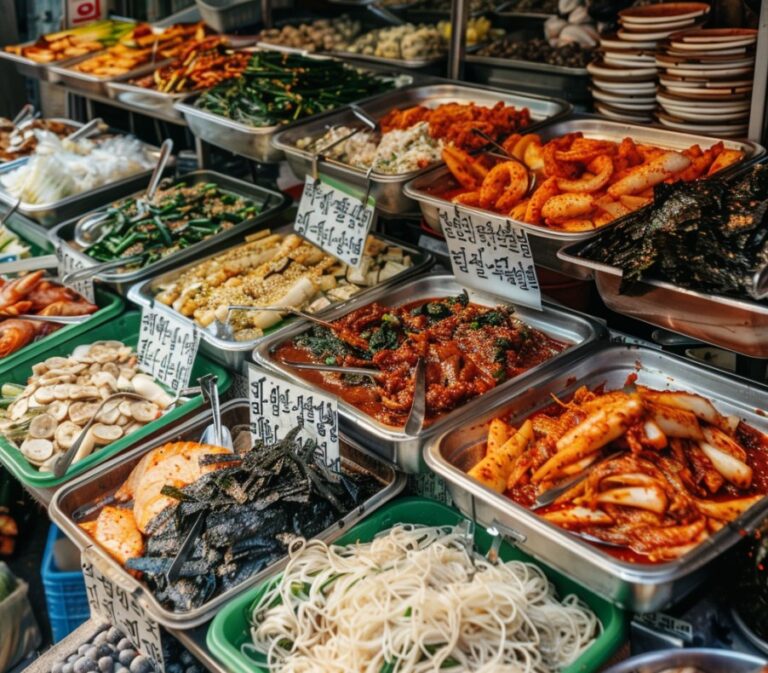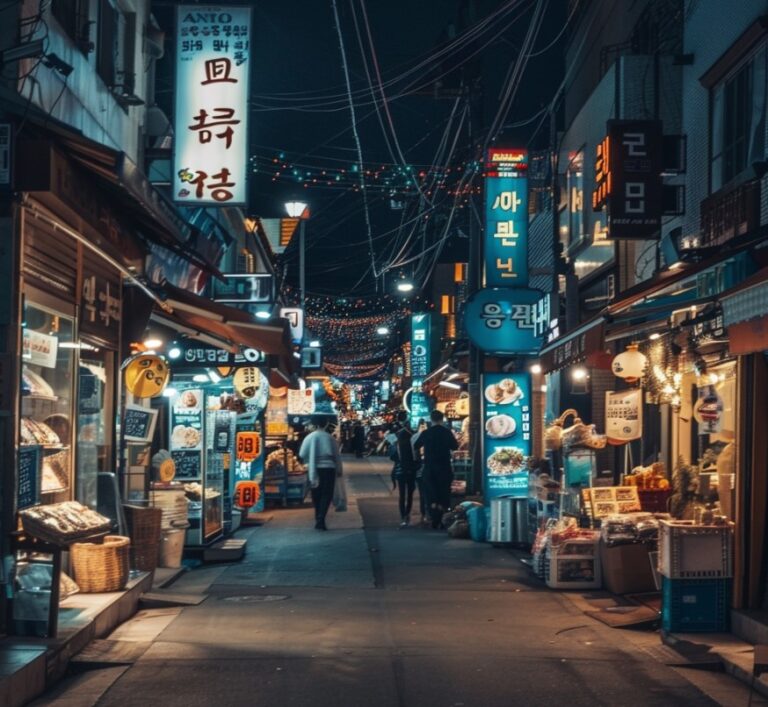Medications not allowed in South Korea
South Korea, known for its advanced healthcare system and strict regulations, has a list of medications that are not allowed within its borders. These restrictions are in place to ensure the safety and well-being of its citizens, as well as to maintain control over the quality and efficacy of pharmaceutical products available in the country. Understanding which medications are prohibited in South Korea is crucial for travelers, expatriates, and healthcare professionals to avoid any legal issues or health risks. Let’s delve deeper into the topic of medications not allowed in South Korea.
List of Medications Not Allowed in South Korea
- Controlled Substances:
- Marijuana, hemp extract products, and CBD oil are generally banned from entry into South Korea.
- Medications containing narcotics like Viagra, Cialis, hemp, MDMA, heroin, cocaine, opium, Philopon, and diet boost pills are highly prohibited from entering Korea.
- For medications not containing narcotics or amphetamines, up to six bottles (equivalent to a three-month supply) for personal use are permitted in Korea.
- Application Process:
- Visitors must submit a written application to the Ministry of Food and Drug Safety (MFDS) before traveling with prescription medications.
- For medications not containing narcotics, visitors need to bring original prescriptions, a doctor’s letter specifying the medical condition, and a statement on the imported medicines.
- Alternative Options:
- If prescribed medication is not allowed in Korea, visitors can consult with a Korean doctor for a similar product or choose from local equivalents in Korea.
Overview of Medications Regulations in South Korea
South Korea’s pharmaceutical regulations are governed by the Ministry of Food and Drug Safety (MFDS), which is responsible for ensuring the safety, efficacy, and quality of pharmaceutical products in the country. The MFDS closely monitors and regulates the importation, distribution, and sale of medications to protect public health.

Reasons for Prohibiting Certain Medications
The prohibition of certain medications in South Korea can be attributed to various reasons, including:
- Safety Concerns: Some medications may pose serious health risks or have harmful side effects that outweigh their benefits.
- Efficacy: Medications that are deemed ineffective or lacking sufficient clinical evidence may be banned.
- Regulatory Compliance: Certain drugs may not meet South Korea’s regulatory standards for quality, manufacturing practices, or labeling requirements.
- Public Health Concerns: Drugs with a high potential for abuse or misuse may be restricted to prevent substance abuse issues.
Common Types of Medications Not Allowed in South Korea
- Over-the-Counter (OTC) Medications: Some OTC medications that are readily available in other countries may be prohibited in South Korea due to differences in regulations or safety concerns.
- Prescription Drugs: Certain prescription medications commonly used elsewhere may be restricted or require special approval for importation.
- Herbal Supplements: Herbal remedies or supplements that are not approved by the MFDS may be banned.
- Narcotics and Controlled Substances: Drugs classified as narcotics or controlled substances under South Korean law are strictly regulated.
Examples of Prohibited Medications
- Codeine: Codeine-containing products are generally not allowed in South Korea due to their potential for abuse and addiction.
- Modafinil: This wakefulness-promoting agent is restricted in South Korea due to concerns about misuse.
- Melatonin: While melatonin is widely used as a sleep aid in many countries, its status in South Korea is subject to restrictions.
- Certain Antibiotics: Some antibiotics that are commonly prescribed elsewhere may be prohibited or restricted in South Korea due to concerns about antibiotic resistance.
Travelers’ Considerations
For travelers visiting South Korea, it is essential to be aware of the country’s medication regulations to avoid any legal issues or health complications. Here are some tips:
- Check Regulations: Before traveling to South Korea, research the specific medications you plan to bring and verify their legality in the country.
- Obtain Necessary Documentation: If you need to bring a medication that is restricted in South Korea, obtain a doctor’s prescription and any required permits in advance.
- Alternative Options: Consider alternative medications that are permitted in South Korea if your usual medication is prohibited.
How to get antibiotics in South Korea
To get antibiotics in South Korea, you typically need a doctor’s prescription. Here are the general steps involved:
- Visit a Doctor: You need to see a doctor in South Korea who can assess your condition and prescribe the appropriate antibiotics.
- Get a Prescription: Once the doctor prescribes the antibiotics, you will receive a written prescription that you can take to a pharmacy (약국, yakguk).
- Pharmacy Visit: At the pharmacy, present your doctor’s prescription at the counter to purchase the antibiotics.
It’s important to note that certain prescription drugs, including antibiotics, require a doctor’s prescription in South Korea. The country has regulations in place to control the import and use of medications, so it’s essential to follow the proper procedures when obtaining antibiotics.
How to get a prescription in South Korea
To obtain a prescription in South Korea, follow these steps:
- Consult a licensed physician. Visit a doctor who speaks English fluently or consider seeking care at clinics specifically catering to expatriates, such as Dr. Kim at the International Clinic in Itaewon, recommended by users on Reddit.
- Provide a detailed explanation of your symptoms and medical history. Be sure to mention any pre-existing conditions and current medications you are taking.
- Obtain a valid prescription from the doctor. The prescription will specify the name of the medication, its dose, and duration of treatment.
- Take the prescription to a pharmacy (약국, yakguk). In South Korea, most pharmacies operate between 9 AM and 7 PM, Monday through Saturday.
- Present your health insurance details when having the prescription filled. If you have South Korean health insurance, you may only need to pay a small co-payment for prescription medication.
- Confirm that the medication is legal in South Korea. Not all medications that are legally prescribed in other countries are approved for use in South Korea.
For controlled substances, such as narcotic medications, visitors must apply to the Ministry of Food and Drug Safety (MFDS) before traveling. Up to six bottles of medication (equivalent to a three-month supply) for personal use will be permitted, providing the visitor brings the original prescriptions, a letter from their doctor specifying the medical condition, and a statement from their doctor on the medicines being imported.
Keep in mind that it is best to carry sufficient supplies of essential medications for the length of your stay, as obtaining certain medications in South Korea might involve additional diagnostic tests or difficulty in locating exact equivalents.
Popular pharmacies in South Korea
Some popular pharmacies in South Korea include:
- Centro Pharmacy
- Rating: 4.7
- Address: South Korea, Seoul, Jongno-gu.
- Pharmacy Hi
- Rating: 5
- Address: Myeongdong, Jung-gu, Seoul.
- Good Pharmacy
- Rating: 4.5
- Address: Myeong-dong, Jung-gu, Seoul.
- Wellness Pharmacy
- Rating: 4.4
- Address: Myeongdong 10-gil, Jung-gu, Seoul.
- Korean Ginseng Center
- Rating: 3.6
- Address: Deogeun-dong, Deogyang-gu, Goyang-si, Gyeonggi-do.
- Orange Pharmacy
- Address: Euljiro 2(i)-ga, Jung-gu, Seoul.
- MEDIPHARM SeockChon Pharmacy
- Rating: 5
- Address: Samjeon-dong, Songpa-gu, Seoul.
- Bright Pharmacy (밝은약국)
- Address: Sapyeong-daero 56-gil, Seocho-gu, Seoul.
These pharmacies offer a variety of products ranging from medicines to cosmetics and household goods. Additionally, some pharmacies in South Korea have foreign language competency to assist non-Korean speakers.
Conclusion
In conclusion, understanding which medications are not allowed in South Korea is crucial for anyone residing in or traveling to the country. By being informed about the regulations and restrictions surrounding pharmaceutical products, individuals can ensure compliance with the law and safeguard their health. It is recommended to consult with healthcare professionals or local authorities for specific guidance on medication importation and usage in South Korea.



